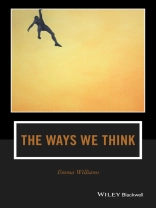The Ways We Think critiques predominant approaches to the development of thinking in education and seeks to offer a new account of thought informed by phenomenology, post-structuralism and the ‘ordinary language’ philosophical traditions.
* Presents an original account of thinking for education and explores how this alternative conception of thought might be translated into the classroom
* Explores connections between phenomenology, post-structuralism and ordinary language philosophical traditions
* Examines the relevance of language in accounts of how we think
* Investigates the philosophical accounts of Gilbert Ryle, Martin Heidegger, John Austin and Jacques Derrida
* Draws upon experience of own teaching practice as philosopher-in-residence
Jadual kandungan
Preface vii
Acknowledgements xi
1 Today’s Thinking: Following the Lines of Rationalism 1
2 A Brief Detour: ‘Authentic’ and ‘Poetic’ Thinking 42
3 ‘Ahead of All Beaten Tracks’: Ryle, Heidegger, and the Ways of Thinking 58
4 A Way Beyond: Thinking Responsibly with Heidegger 89
5 Following the Sign: Derrida and the Language of Thought 127
6 Out of the Ordinary: Incorporating Limits with Derrida and Austin 158
7 The Way Before the Way Before: Crossing Paths with Heidegger and Derrida 189
8 A Weaving of the Ways: The Open Possibilities of Thought 220
Bibliography 247
Index 253
Mengenai Pengarang
Emma Williams is Assistant Professor in the Department of Education Studies, University of Warwick. She was previously Philosopher-in-Residence at Rugby School, where she taught Philosophy across the curriculum and helped develop interdisciplinary courses for the new A Level Qualification: The Extended Project. She has a background in Philosophy, particularly Post-Kantian European Philosophy, and the Philosophy of Education. Her work explores the themes of language, rationality and subjectivity within the context of education.












